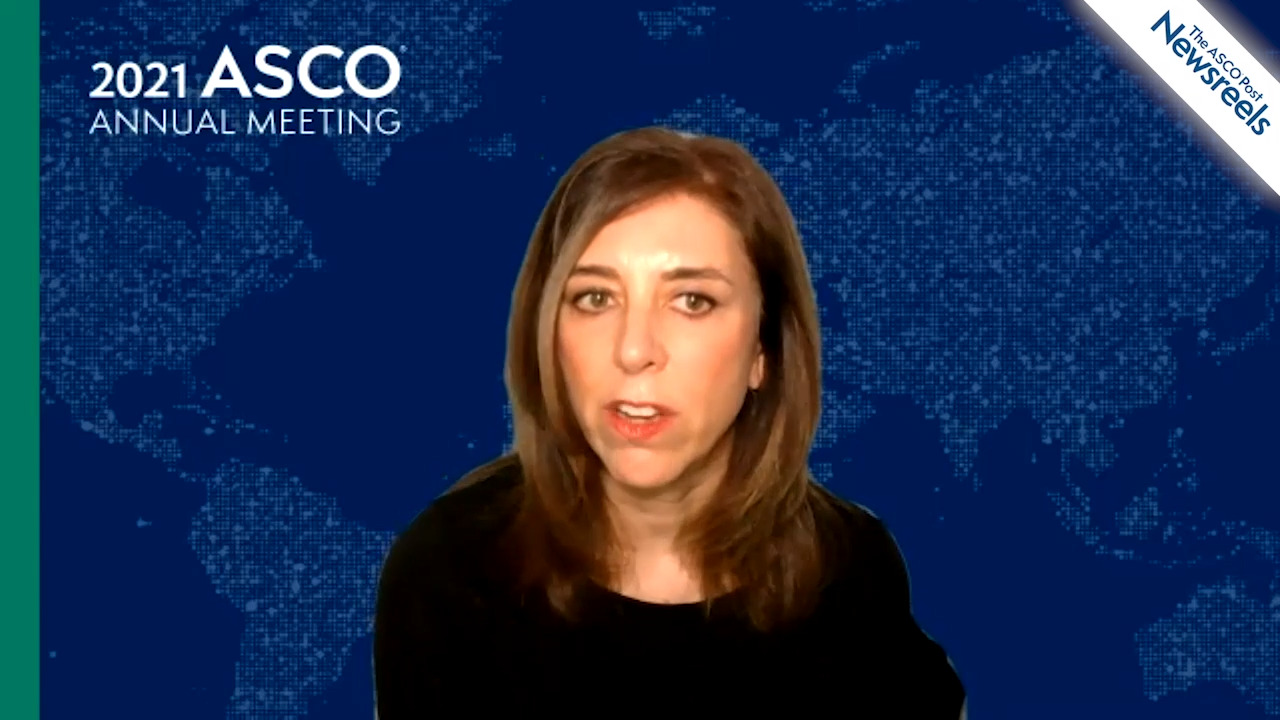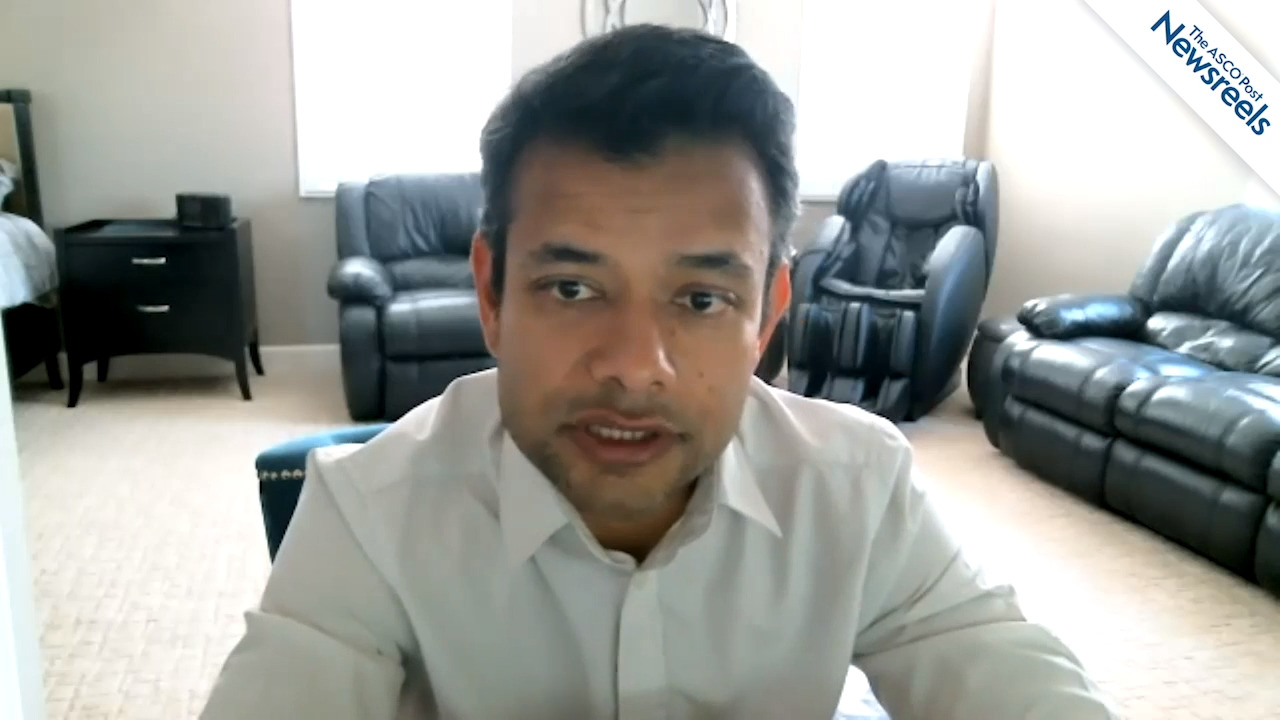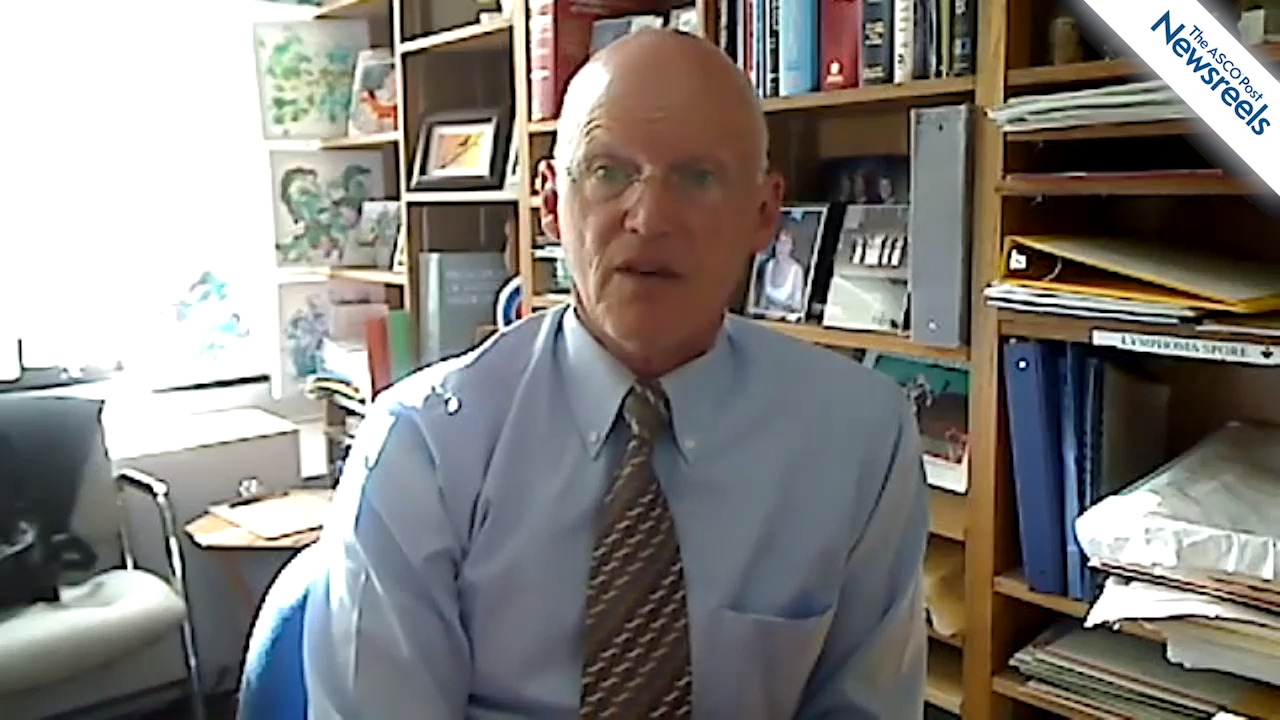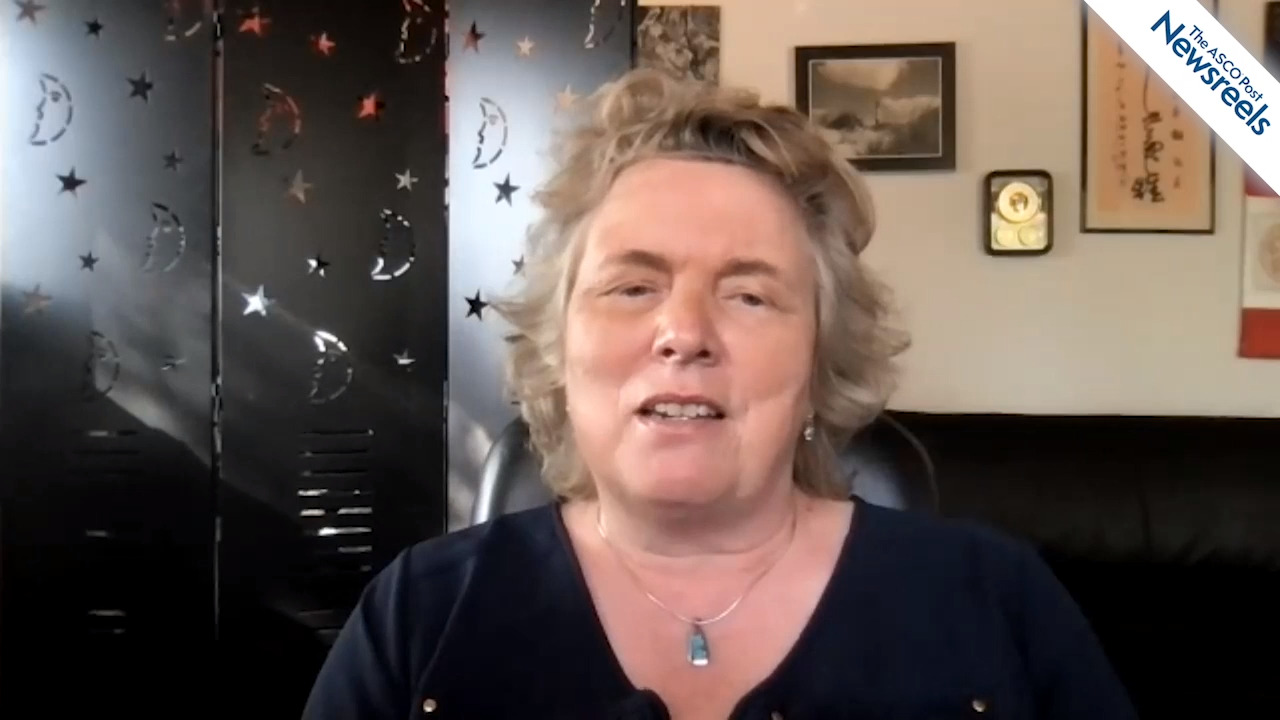Jingxuan Zhao, MPH, on How Medicaid Expansion Affects Long-Term Cancer Survival
2021 ASCO Annual Meeting
Jingxuan Zhao, MPH, of the American Cancer Society, discusses study findings that showed worse long-term survival among low-income patients with cancer who live in states that have not expanded Medicaid eligibility (Abstract 6512).
The ASCO Post Staff
Ann S. LaCasce, MD, of Dana-Farber Cancer Institute, discusses results from the CALGB 50801 Alliance study, which showed that a PET scan–adapted approach may reduce the need for radiation treatment and may improve progression-free outcomes in patients with stage I/II bulky classic Hodgkin lymphoma (Abstract 7507).
The ASCO Post Staff
Sumanta K. Pal, MD, of City of Hope, discusses results from a phase II study that sought to determine whether adding berzosertib, a selective ATR inhibitor, to the standard upfront chemotherapy regimen of cisplatin with gemcitabine may improve outcomes in patients with metastatic urothelial carcinoma (Abstract 4507).
The ASCO Post Staff
Brian K. Link, MD, of the University of Iowa Carver College of Medicine, reviews three abstracts on state-of-the-art therapies for mantle cell lymphoma: bendamustine, rituximab, lenalidomide and bortezomib; treatment patterns and outcomes for previously untreated patients; and venetoclax, lenalidomide, and rituximab in newly diagnosed disease (Abstracts 7503, 7504, and 7505).
The ASCO Post Staff
Nadia Harbeck, MD, PhD, of Ludwig Maximilian University of Munich, discusses first phase III results from a prospective high-risk cohort of patients with luminal breast cancer, which showed a good prognosis in some women with more than four positive lymph nodes and low recurrence scores. The study also showed that a lower postendocrine Ki67 index and limited tumor burden may be promising criteria for chemotherapy de-escalation strategies, even in patients with high recurrence scores (Abstract 504).
The ASCO Post Staff
Peter C. Black, MD, of the Vancouver Prostate Centre, University of British Columbia, reviews three studies on early detection and treatment of Black patients with prostate cancer: a large-scale analysis of genomic profiling; the use of PSA screening; and integrating a patient-specific genomic classifier to improve risk classification and treatment recommendations for Black men (Abstracts 5003, 5004, and 5005).





